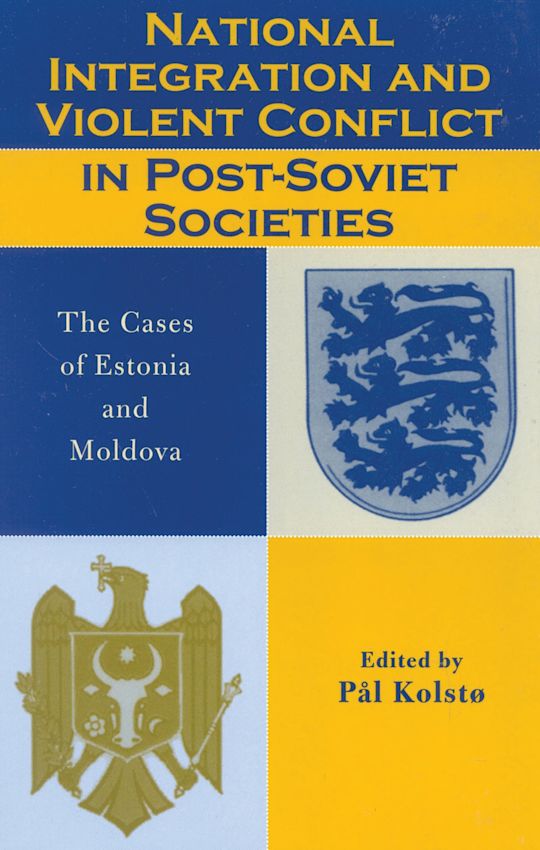- Home
- ACADEMIC
- Politics & International Relations
- Introduction to International Relations
- National Integration and Violent Conflict in Post-Soviet Societies
National Integration and Violent Conflict in Post-Soviet Societies
The Cases of Estonia and Moldova
National Integration and Violent Conflict in Post-Soviet Societies
The Cases of Estonia and Moldova
For information on how we process your data, read our Privacy Policy
Thank you. We will email you when this book is available to order
You must sign in to add this item to your wishlist. Please sign in or create an account
Description
Why has social peace been preserved in some new, nationalizing countries in Eastern Europe and broken down in others? While civil peace has reigned in Estonia, Moldova experienced a bloody civil war in 1992, claiming more than a thousand casualties. These two states in question share a number of common characteristics, but there is one important difference.
National Integration and Violent Conflict in Post-Soviet Societies analyzes processes of nation-building and ethnic integration in Estonia and Moldova in order to increase our general understanding of how social peace remains strong in one place and disintegrates in another. Chapters employ both "on the ground" empirical studies and a strong theoretical framework to discuss theories on ethnic violence in the modern world and their possible relevance for these two cases. Additionally, the results of two large-scale surveys and four country chapters written by scholars living and working in Moldova and Estonia round out the book's exploration of each country's similarities and differences. The resulting volume contributes to a better understanding of national integration process in Estonia and Moldova and of national integration and communal violence in general.
Table of Contents
Chapter 2 Integration, Alienation, and Conflict in Estonia and Moldova at the Societal Level: A Comparison
Chapter 3 The Cultural and Social Makeup of Estonia
Chapter 4 Estonia: Nation-Building and Integration-Political and Legal Aspects
Chapter 5 The Cultural and Social Makeup of Moldova: A Bipolar or Dispersed Society?
Chapter 6 Social Multipolarity and Political Violence
Chapter 7 Russia and the OSCE: The Influence of Interested Third and Disinterested Fourth Parties on the Conflicts in Estonia and Moldova
Chapter 8 Conclusion
Product details
| Published | Nov 11 2002 |
|---|---|
| Format | Ebook (Epub & Mobi) |
| Edition | 1st |
| Extent | 320 |
| ISBN | 9781461639459 |
| Imprint | Rowman & Littlefield |
| Publisher | Bloomsbury Publishing |
About the contributors
Reviews
-
This book should be essential reading for anyone interested in gaining a more nuanced understanding not only of the cases at hand, but also of the general dynamics of ethnic relations within the former USSR more generally.
David J. Smith, University of Glasgow
-
The chapters in this edited book hang together unusually well, and the editor has done a fine job of tying together the arguments about both culture and contingency that arise in the contributors' well-crafted essays.
Slavic Review



































